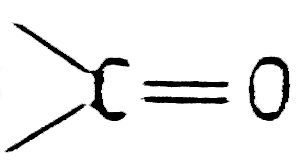Benzene contains double bonds but does not give addition reactions because
Video Solution
Text Solution
The correct Answer is:C
Resonance
|
Topper's Solved these Questions
- HYDROCARBONS BOOK - NARAYNACHAPTER - HYDROCARBONS EXERCISE - C.U.Q (PREPARATION & PROPERTIES)
14 Videos
- HYDROCARBONS BOOK - NARAYNACHAPTER - HYDROCARBONS EXERCISE - C.U.Q (DIRECTING INFLUENCE OF FUNCTIONAL GROUPS & CHEMICAL REACTIVITY)
6 Videos
- HYDROCARBONS BOOK - NARAYNACHAPTER - HYDROCARBONS EXERCISE - C.U.Q (NOMENCLATURE & METHODS OF REPARATION)
7 Videos
- GENERAL ORGANIC CHEMISTRYBOOK - NARAYNACHAPTER - GENERAL ORGANIC CHEMISTRYEXERCISE - Matrix-Match type questions
7 Videos
- HYDROGEN & ITS COMPOUCDSBOOK - NARAYNACHAPTER - HYDROGEN & ITS COMPOUCDSEXERCISE - Interger type questions
10 Videos
Similar Questions
Knowledge Check
Aldehydes and ketones give addition reactions with
AHCNBNaHSO3CRMgXDROHAldehydes and ketones give addition reaction with
AHydrazineBPhenyl hydrazineCSemicarbazideDHydrogen cyanideAniline does not give coupling reactions at pH <5 because :
ADiazonium salt converts into C6H5−N=N−Cl which cannot coupleBAniline coverts into C6H5⊕NH3Cl− , which cannot coupleCboth (1) and (2 ) .DCoupling only takes place in basic medium .
Alkenes and carbonyl compounds both contain a π bond but alkenes show electrophilic addition reaction whereas carbonyl compounds show nucleophilic addition reactions. Explains.
View SolutionAlkenes
 and carbonyl compounds
and carbonyl compounds  both contain a π bond but alkenes show electrophilic addition reactions whereas carbonyl compounds show nucleophilic addition reactions. Explain.
both contain a π bond but alkenes show electrophilic addition reactions whereas carbonyl compounds show nucleophilic addition reactions. Explain.
View SolutionAlthough benzene is highly unsaturated it does not undergo addition reactions. The explanation of this can be suggested as
View SolutionA characteristic reaction of compounds with a carbon-carbon double bond is an addition reaction. Addition reactions are
View SolutionChlorobenzene does not give SN1 reaction, because of
View Solution
